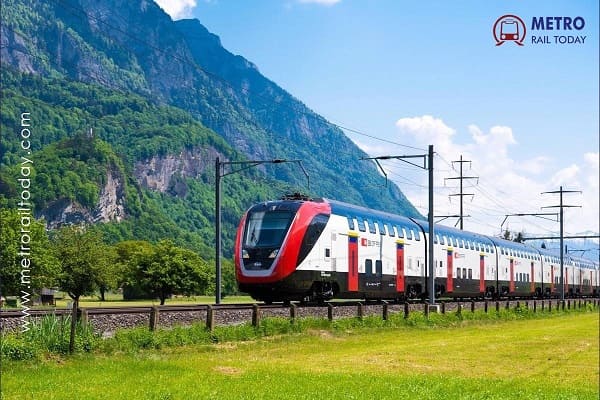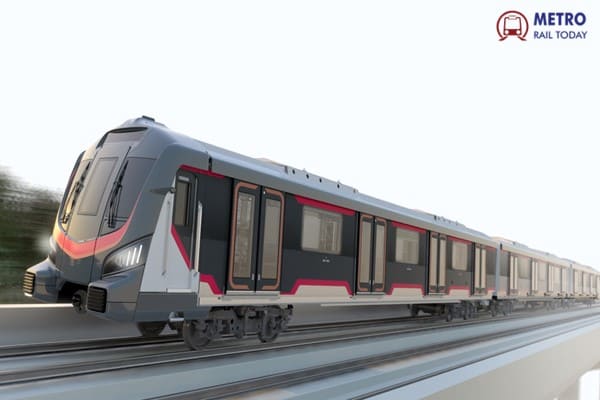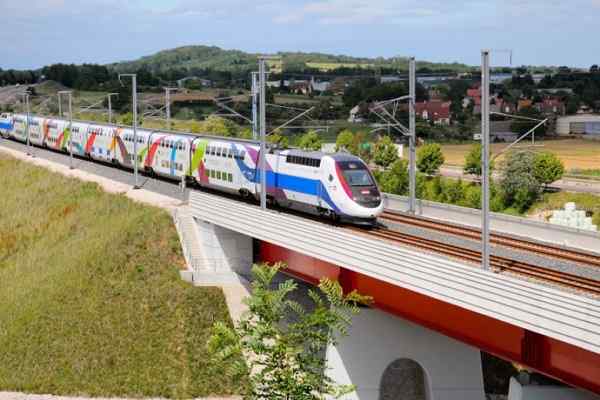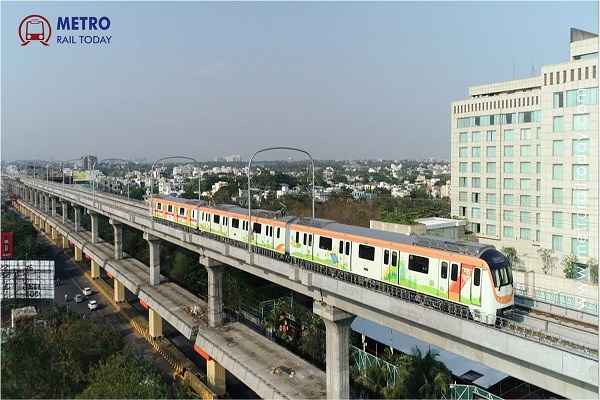 Maha Metro to appoint consultant for carbon credits for Nagpur and Pune Metro Projects
Maha Metro to appoint consultant for carbon credits for Nagpur and Pune Metro Projects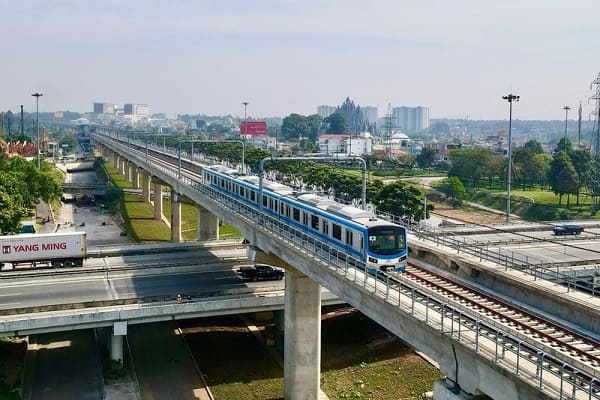 Kerala likely to approve ₹11,560.8 crore Trivandrum Metro Rail Project next month
Kerala likely to approve ₹11,560.8 crore Trivandrum Metro Rail Project next month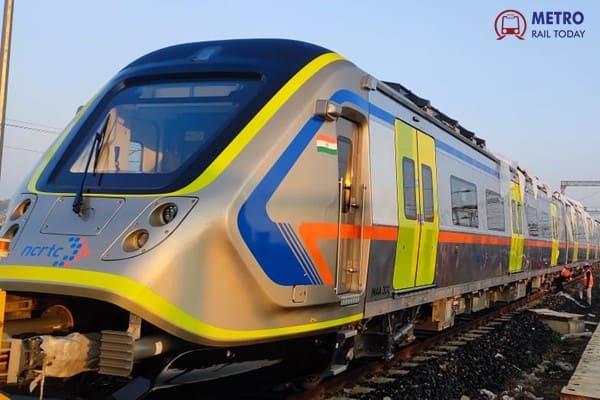 How will Meerut Metro's Partapur station be unique with two platforms and four tracks?
How will Meerut Metro's Partapur station be unique with two platforms and four tracks?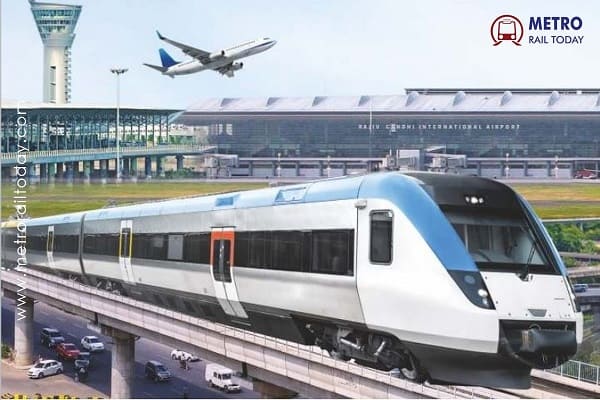 Survey conducted on Hyderabad Airport Metro Corridor to finalize alignment
Survey conducted on Hyderabad Airport Metro Corridor to finalize alignment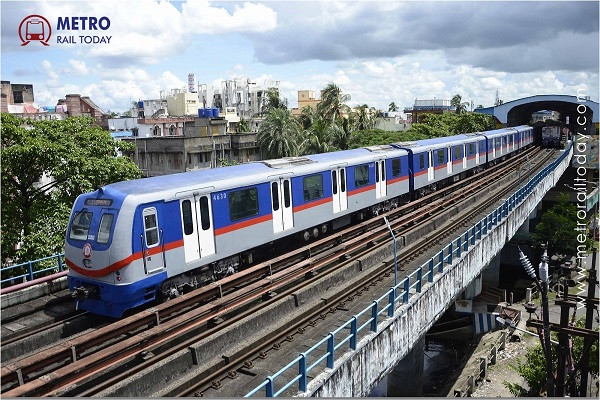 Kolkata Metro conducts trial runs on Orange Line from Ruby Crossing to Beleghata
Kolkata Metro conducts trial runs on Orange Line from Ruby Crossing to Beleghata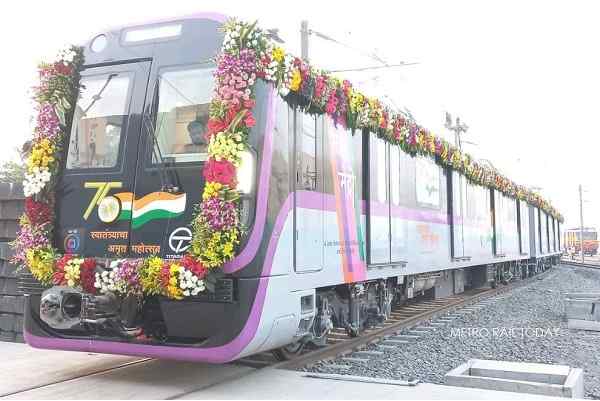 Empowering India's Metro Rail Projects: The Rise of I-METRO Society
Empowering India's Metro Rail Projects: The Rise of I-METRO Society Knorr-Bremse and Stadler sign deal to revolutionize train service across Europe
Knorr-Bremse and Stadler sign deal to revolutionize train service across Europe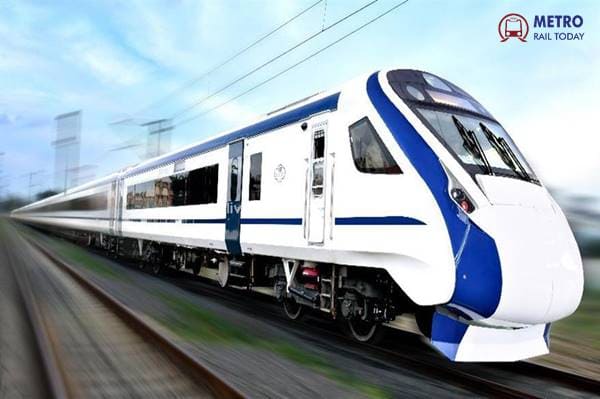 Trial runs of the first Vande Metro Train likely to commence in July this year
Trial runs of the first Vande Metro Train likely to commence in July this year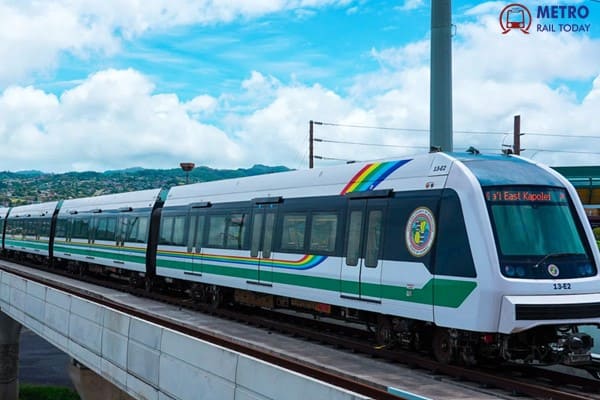 The Skyline Rail Project: Revolutionizing Rapid Transportation in Honolulu, Hawaii
The Skyline Rail Project: Revolutionizing Rapid Transportation in Honolulu, Hawaii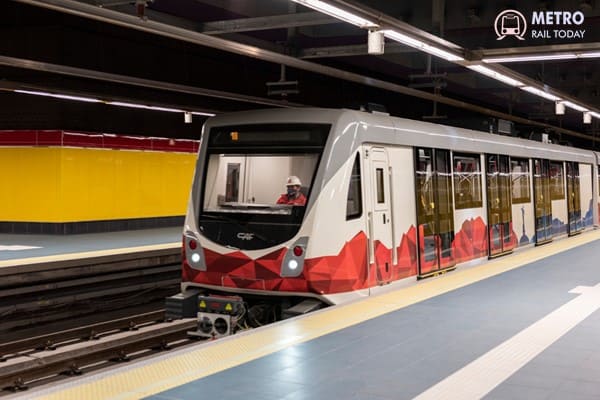 Tender floated for Prague Metro Trains and Automated Train Operation (ATO)
Tender floated for Prague Metro Trains and Automated Train Operation (ATO)
Global hydrogen fuel cell train market to reach $26.41 billion by 2035

Hydrogen fuel cell trains, leveraging hydrogen as a power source for propulsion and auxiliary functions, have emerged as a promising solution in the pursuit of zero-emission rail transport. Recent years have witnessed a surge in research focused on harnessing hydrogen as a viable fuel for powering trains, as the rail sector endeavors to address challenges related to hydrogen storage infrastructure and public perceptions regarding safety and cost.
The global hydrogen fuel cell train market is poised for substantial growth, propelled by several key factors. Investments in railway infrastructure development are on the rise, driven by the imperative to modernize transportation networks and curb environmental impact. Growing environmental concerns, coupled with an increasing demand for sustainable public transport options, further bolster the prospects of hydrogen fuel cell trains.
However, the industry faces significant hurdles, notably the high capital requirements for developing hydrogen fuel cell trains and the refurbishment of existing rolling stock. Overcoming these challenges necessitates concerted efforts in research and development to optimize hydrogen fuel cell technology and enhance cost-efficiency.
Amidst these challenges lie opportunities for innovation and expansion. R&D activities focused on advancing hydrogen fuel cell technology are gaining momentum, promising breakthroughs in efficiency and affordability. Moreover, the rising demand for passenger trains, particularly in urban and suburban areas, presents a fertile ground for the proliferation of hydrogen fuel cell trains.
The hydrogen fuel cell train market is segmented across various parameters, including application, technology, component, rail type, and region. Passenger trains, freight trains, and other applications constitute key segments, alongside differentiating technologies such as proton exchange membrane fuel cells and phosphoric acid fuel cells. Components encompass hydrogen fuel cell packs, batteries, electric traction motors, among others, catering to diverse rail types spanning passenger, commuter, light rail, trams, freight, and more.
Leading players in the hydrogen fuel cell train market include renowned names such as Progress Rail, Alstom, CRRC Corporation Limited, Stadler, IHI Corporation, ENGIE, Talgo, Kawasaki Heavy Industries, Siemens Mobility, Hitachi, Wabtec, PESA, Ballard Power Systems, Toyota, BNSF, Hyundai Corporation, and CAF Group. These industry giants drive innovation and collaboration, shaping the trajectory of sustainable rail transport worldwide.
Forecasts indicate robust growth prospects for the global hydrogen fuel cell train market, with anticipated valuation reaching $2.67 billion by 2025 and projected expansion to $26.41 billion by 2035. This exponential growth trajectory, marked by a compound annual growth rate (CAGR) of 28.2% from 2026 to 2035, underscores the transformative potential of hydrogen fuel cell trains in revolutionizing the future of rail transport.





